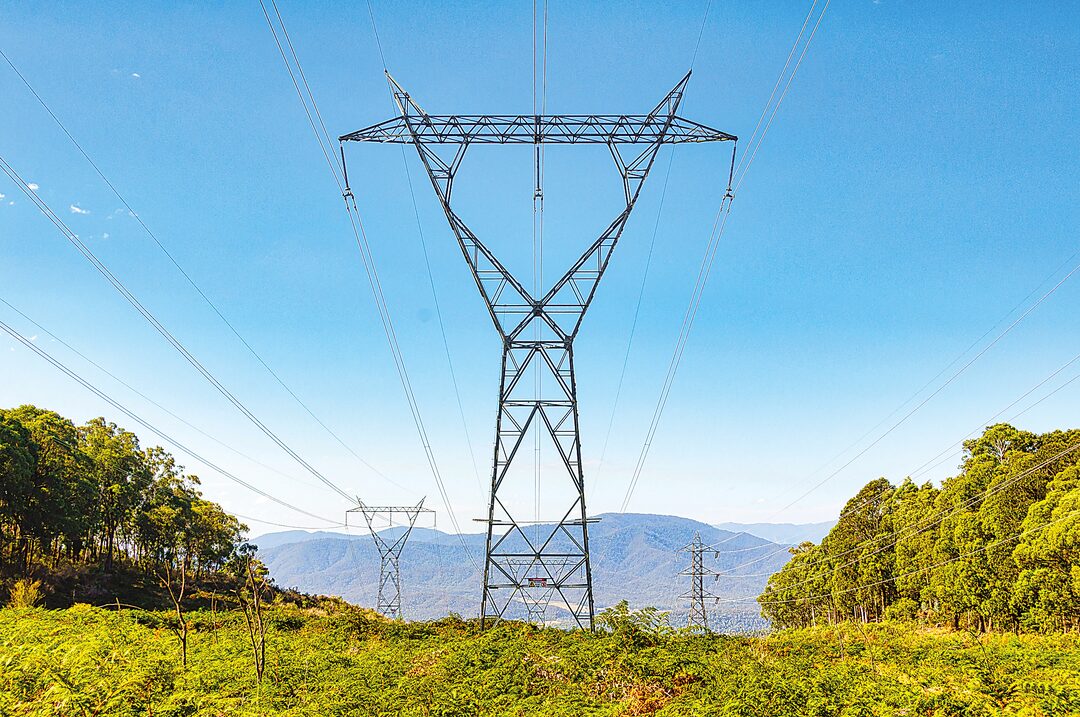By DAVID BRAITHWAITE
THE state government’s contentious energy transmission legislation has passed parliament, with the support of crossbench MPs from the Greens, Cannabis and Animal Justice parties.
The National Electricity (Victoria) Amendment (VicGrid Stage 2 Reform) Bill 2025 gives officials the power to use “reasonable force” to enter land deemed necessary for the construction of electricity transmission towers.
Officials will have the power to remove any obstruction, with authorisation to cut locks and break open gates when undertaking involuntary entry onto properties.
Amendments to the proposed bill has seen the maximum fine for landholders blocking VicGrid from entering their properties reduced from $12,000 to $8000.
Opposing the legislation, Nationals Member for Eastern Victoria Melina Bath said the Labor government’s new sweeping powers would erode property rights, transparency, and the democratic process in regional Victoria.
“Labor’s VicGrid legislation will have dire consequences for primary producers, rural communities and our billion-dollar agriculture industry,” she said.
“The bill is not reform, it’s a complete overreach that hands state government authorities sweeping powers to issue ‘special orders’ without any consultation or explanation.
“Labor calls it ‘cutting red tape’, but the reality is government appointed operators will be legally allowed to cut locks, enter farms without consent, and impose heavy fines if landholders refuse access to their private property.”
Ms Bath said the government has silenced regional voices and denied communities of their right to be heard.
“It strips regional Victorians of their capability to appeal through VCAT and shields VicGrid from scrutiny by exempting it from freedom of information laws, blocking access to vital documents,” she said.
“The Nationals are not opposed to renewable energy projects and transmission infrastructure, but these projects should not occur at the expense of country communities and our food and fibre industry.”
Nationals leader, and Member for Gippsland South, Danny O’Brien said regional Victorians continued to be “snubbed, bullied and disrespected by the government”.
“In the relentless rush to renewables farmers and landowners have become the victims,” he said.
“In government, we will repeal this legislation, hand back the rights of rural people and give them the respect they deserve. We will reintroduce a two-kilometre buffer zone between wind turbines and homes and bring back the right of appeal against these projects. Regional Victorians must have a voice.”
During the debate of the bill in the upper house of parliament, Labor Member for Eastern Victoria Tom McIntosh said the government was helping farmers.
“We know farmers are getting smashed, whether it is by wind events, by fire, by flood or by whatever is happening out of a more unstable climate. When we have more carbon dioxide in the atmosphere and the sun’s rays come in they get trapped, things heat up and we get more moisture in the atmosphere, and when that moisture moves around at a higher pace and at a more ferocious level, bad things happen, it is not good, and that hits us economically,” Mr McIntosh said.
“For our farmers, when they get hit and smashed, then that flows on to everybody in the price at the supermarket.
“Farmers interests should be first, farmers, not multinational mining companies. If we do not want to see the corporatisation of farming in this state, if we do not want to see the corporatisation of farming in this nation, if we want to see mums and dads and families on farms … and if we want to see family farms being passed down from generation-to-generation, then we have to ensure that the conditions are there for farmers to be able to do so.
“I am very proud to have a value of decarbonising our economy and reducing our emissions so we are all not getting smashed economically, whether that is the farmer or our entire society, from lower agricultural outputs.”
Also in parliament, Greens MP Sarah Mansfield said the bill would ensure regional communities hosting transmission infrastructure benefitted from the “cheap, clean energy that they are helping to bring about for all of us”.
“A truly just transition to renewables includes recognising the essential role our communities are playing in hosting this infrastructure to enable our whole state to benefit from renewable energy. I am glad to see this is now reflected in the new community energy fund set up by this legislation,” Ms Mansfield said.
Another Member for Eastern Victoria, Shooters Fishers and Farmers Party MP Jeff Bourman opposed the bill.
“I wonder just how morally right it is to be able to have the government, in this case the contractors, force their way onto your land, whether you want it or not,” he said in parliament.
“There was the use of the term ‘reasonable force’. I know under section 462A of the Crimes Act 1958 reasonable force is a pretty serious thing.
“I would like to hope that when entering your property reasonable force does not end up meaning the same thing, because to some people the powers that this bill gives to contractors and the affront that that causes means it feels that big to them.
“A lot of farmers are doing well out of this. They will get some recompense for their problems, but the ones that do not want a part of it I think are being given the raw prawn.”
The new law is a sign of failure, not strength, according to Better Transmission Gippsland (BTG), a group of landholders, professionals and community members.
“This isn’t a fix. It’s an admission that the system has failed to bring people with it in the transition to renewables,” BTG chair Kirra Bott said.
“We’re not anti-renewables; we’re allies of the renewables industry. Offshore wind off the coast of Gippsland will be the new Latrobe Valley.
“What we do here isn’t just about power generation, it’s about energy security for the entire state. But if you connect it with the wrong infrastructure, you put everyone’s future at risk.
“And, we’re not talking about just one transmission line. If the project develops to is full potential, Gippsland is looking at six or more new transmission lines in the years ahead.
“That’s why the first one matters. If we get it wrong here, we risk compounding the problem at every step that follows.”
BTC claimed the real failure in the legislation was the government’s refusal to question it was “outdated overhead transmission assumptions pushed by AEMO and AusNet”.
“This isn’t about inadequate planning. It’s about convenience over courage,” Ms Bott said.
“The government is accepting flawed assumptions, protecting vested interests and punishing the people who dare to ask for something better.”
What makes these new powers even harder to swallow, Ms Bott said, was Gippsland landholders were already dealing with overlapping infrastructure demands.
“CarbonNet, gas pipelines, road expansions and more. Yet we’re still at the table and engaged. We’re trying to make things work better, and the thanks we get is a law that threatens us with fines for asking hard questions,” Ms Bott said.
Victorian Farmers Federation president Brett Hosking said the legislation risked further eroding trust at a time when cooperation was needed to deliver the energy transition.
“Farmers aren’t standing in the way of renewables, but we refuse to be trampled over in the process,” he said.
“Right now, the legislation locks in a system where rural Victoria carries the burden, while the benefits are shipped off elsewhere.”
Mr Hosking added amendments to the bill which halved some of the fines would do little to calm community sentiment.
“The reduction in fines is cold comfort given they never should have been part of this bill in the first place,” he said.
Mr Hosking noted MPs from across the political spectrum admitted during debate that transmission engagement to date has failed communities.
“When politicians from all sides agree engagement has been a failure, it shows just how badly the process has gone off track. The government cannot ignore that warning, it must reset and rebuild trust before any more projects proceed,” Mr Hosking said.











